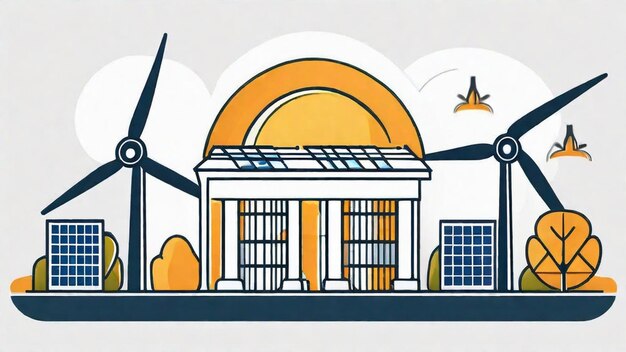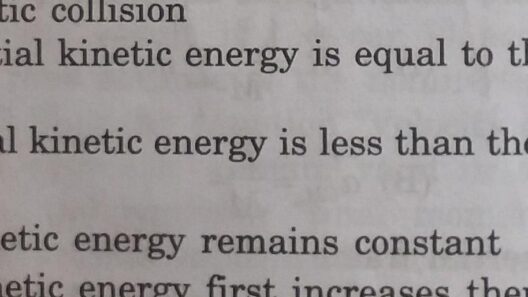The pressing issue of climate change necessitates a multifaceted approach, with sustainable energy practices at the forefront of effective solutions. Governments worldwide play a pivotal role in this transition. By enacting policies and creating frameworks that promote sustainable energy, they can drive significant change toward a greener future. The question arises: how can governments effectively promote sustainable energy practices? The answer lies in a strategic blend of regulation, innovation, education, and investment.
Firstly, regulatory frameworks are essential in establishing a solid foundation for sustainable energy. Legislation that mandates the reduction of greenhouse gas emissions can create a conducive environment for the widespread adoption of renewable energy sources. Governments can implement stringent emissions targets, akin to those seen in international agreements like the Paris Accord. By holding businesses accountable for their carbon footprints, governments can incentivize the transition to low-carbon alternatives. This regulatory impetus serves not only to mitigate climate change but also stimulates economic innovation as companies invest in cleaner technologies to comply with such mandates.
Moreover, providing tax incentives and subsidies for renewable energy projects is crucial. By lowering the financial barriers to entry, governments can encourage a plethora of stakeholders—from large corporations to individual homeowners—to invest in solar, wind, and other renewable energy sources. Such economic stimuli could take the form of grants for residential solar installations or tax breaks for businesses that prioritize energy efficiency. These financial instruments can catalyze the shift towards sustainable practices, making them more accessible and appealing to the populace.
In addition to regulatory measures, governments can bolster research and development (R&D) in the field of renewable energy. Investment in innovative technologies not only enhances the efficiency of existing energy systems but also paves the way for novel energy solutions. Furthermore, collaborating with academic institutions and private companies can yield breakthroughs in energy storage technologies, smart grids, and carbon capture systems. By positioning themselves as catalysts for innovation, governments can facilitate advancements that drive the sustainable energy agenda forward while creating new economic opportunities in the green tech sector.
Education stands as another crucial pillar in promoting sustainable energy practices. Governments can launch widespread public awareness campaigns to enlighten citizens about renewable energy benefits and the importance of sustainability. Initiatives could include workshops, educational materials in schools, and community seminars that elucidate the environmental impacts of energy consumption. By fostering a populace that is not only informed but also passionate about sustainable practices, governments can instill a cultural shift towards environmental stewardship.
Furthermore, integrating sustainability into educational curricula can prepare future generations to prioritize environmental issues. By educating students about renewable energy technologies and the implications of climate change, a more environmentally conscious workforce will emerge. This ensures a continuum of innovation and advocacy for sustainable practices across various sectors, potentially reducing reliance on fossil fuels in the long term.
Another strategic avenue for governments is to lead by example through the implementation of sustainable energy practices within their own operations. Government buildings and facilities can be retrofitted with renewable energy systems, such as solar panels or geothermal heating, showcasing a commitment to sustainability. Furthermore, transitioning public transportation to electric or hybrid vehicles exemplifies a tangible commitment to clean energy. Such initiatives not only reduce public sector emissions but also set a benchmark for other sectors to follow.
Moreover, public-private partnerships (PPPs) can be an effective mechanism to leverage resources and expertise in the pursuit of sustainable energy solutions. By collaborating with the private sector, governments can accelerate the deployment of renewable energy projects. These partnerships can share risks and benefits, facilitating large-scale investments that might be difficult for either party to achieve independently. The pooling of resources enables a more resilient approach to addressing the complexities of energy transition.
Another aspect worth noting is the potential of decentralized energy systems. Governments can encourage local initiatives to produce energy closer to where it is consumed, reducing transmission losses and enhancing energy security. Microgrids and community solar projects empower local communities, fostering a sense of ownership and responsibility toward energy consumption. This decentralization not only promotes sustainability but also builds resilience against grid failures and other disruptions.
Furthermore, adaptation of smart grid technology can optimize energy distribution and consumption. By enhancing the efficiency of energy systems, governments can facilitate the integration of a higher percentage of renewable energy into the grid. Smart meters and energy management systems give consumers more control over their energy usage, ultimately leading to reduced overall consumption and fostering a culture of conservation.
Governments can also establish clear targets and accountability measures through comprehensive energy policies that encourage the adoption of sustainable energy practices. Regular public reporting on progress towards sustainability goals fosters transparency and cultivates public trust while holding stakeholders accountable for their commitments. This process can galvanize industries and communities, prompting a collective effort to achieve set objectives.
Finally, international collaboration is vital in the global endeavor toward sustainable energy. Governments should engage in cross-border initiatives that share knowledge, resources, and best practices. By participating in global forums and discussions, nations can learn from one another and collectively address the transnational nature of climate change. Joint ventures can accelerate the deployment of renewable energy technologies across borders, amplifying the impact of domestic efforts.
In summary, the government’s role in promoting sustainable energy practices is profound and multifaceted. From regulatory frameworks and financial incentives to educational initiatives and partnerships, a comprehensive approach is essential for transitioning to sustainable energy. Understanding the interconnectedness of these strategies can inspire a holistic view of environmental responsibility. As societies evolve and technology advances, the commitment to sustainable energy practices must be unwavering—both a necessity and a promise for a healthier planet.







